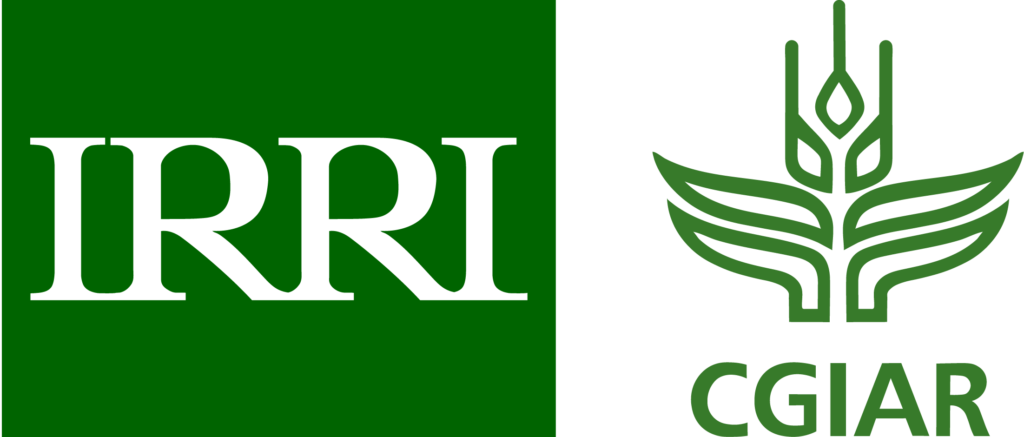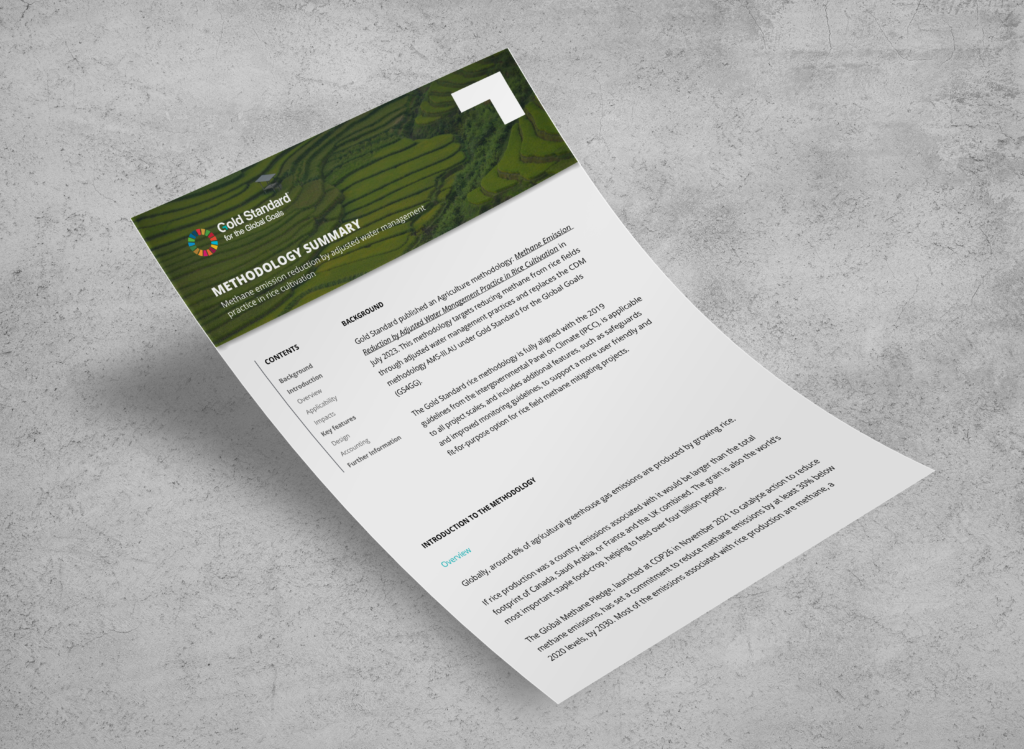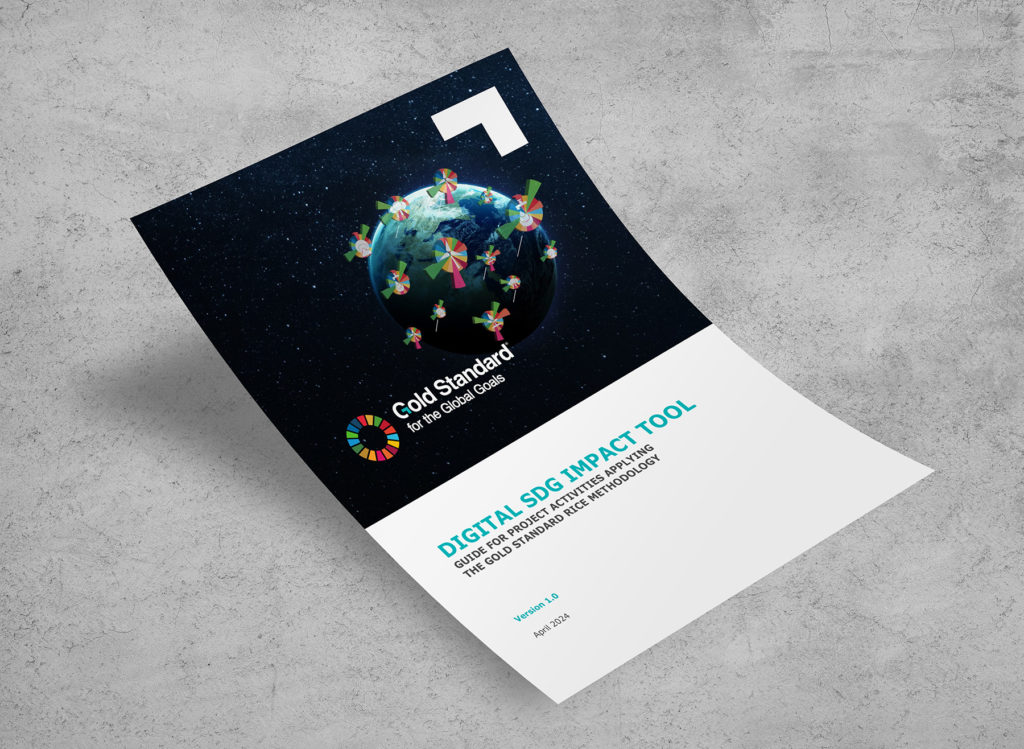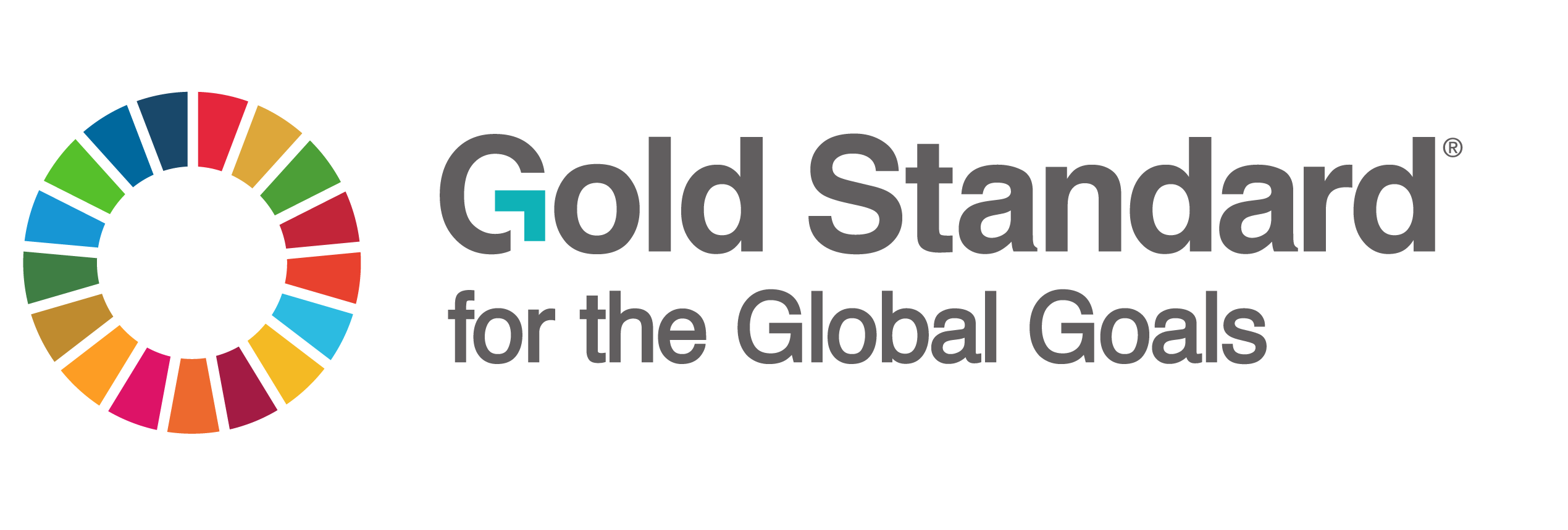The Rice Sustainability Hub hosts resources, tools and templates to support project developers and validation and verification bodies (VVBs) seeking to develop and validate projects that reduce methane emission from rice cultivation. The hub focuses on promoting sustainable rice activities in Vietnam with selected documents also made available in Vietnamese. Many of the resources and tools are also relevant for projects located in other countries.
This hub was developed through a partnership between the International Rice Research Institute (IRRI) and the Australian Department of Foreign Affairs and Trade (DFAT) through the Business Partnerships Platform. The partnership aims to scale carbon market access for sustainable rice producers in Vietnam.
Gold Standard and IRRI invite feedback and suggestions from all stakeholders on the resources hosted on the Rice Sustainability Hub. General feedback can be submitted through this form. For more detailed feedback, including on specific resources, please get in touch at help@goldstandard.org.
The Rice Sustainability Hub will be updated periodically to reflect user feedback and to include additional resources.
PARTNERS



Why reducing methane emissions from rice cultivation matters
Rice is the world’s most important staple food crop, helping to feed over four billion people and providing a livelihood for about 150 million smallholder farmers. Rice production is also a significant source of greenhouse gas emissions. Globally, around 2% of global greenhouse gas emissions are produced by growing rice. This is roughly equivalent to the emissions from international aviation.
Most of the emissions associated with rice production are methane, which is produced when organic matter decomposes in flooded rice fields without access to oxygen. The Global Methane Pledge, launched at COP26 in November 2021 to catalyse action to reduce methane emissions, has set a commitment to reduce methane emissions by at least 30% below 2020 levels by 2030. Expanding low-emissions rice production will be important in reaching this goal.
Demo video
Watch the Demo Video on how navigate this Hub.
CONTENTS
Stakeholders
Standard Documents
Additional information
RESOURCES FOR PROJECT DEVELOPERS
The following resources are provided to support project developers to implement activities under the Gold Standard rice methodology.
Rice Methodology Summary Guidance note on key features of the rice methodology

VIETNAMESE VERSION Tóm Tắt Phương Pháp
A step-by-step guide to certifying projects with Gold Standard

VIETNAMESE VERSION Hướng Dẫn Từng Bước Quy Trình Chứng Nhận
Guidance for applying the SDG Impact Tool for a low-emissions rice project

VIETNAMESE VERSION Hướng dẫn dành cho hoạt động dự án áp dụng phương pháp luận Gold Standard trong canh tác lúa
Gold Standard maintains an up-to-date list of frequently asked questions related to the rice methodology.
The following VVBs are currently accredited to validate and verify low-emissions rice projects under Gold Standard
Examples of completed documentation for projects listed and certified under the rice methodology can be accessed through the Gold Standard Impact Registry.
STANDARD DOCUMENTS

Mandatory requirements
– Project developers seeking Gold Standard certification for rice cultivation projects must also comply with the following key documents:
 Principles & Requirements
Principles & Requirements
 Stakeholder Consultation and Engagement Requirements
Stakeholder Consultation and Engagement Requirements
 Safeguarding Principles and Requirements
Safeguarding Principles and Requirements
 Gender Equality Requirements and Guidelines
Gender Equality Requirements and Guidelines
 Land-Use & Forest Activity Requirements
Land-Use & Forest Activity Requirements
 GHG Emissions Reductions and Sequestration Product Requirements
GHG Emissions Reductions and Sequestration Product Requirements
Optional RequirementS
– Project developers seeking to transition projects from other crediting programmes to Gold Standard shall also comply with the Transition Procedure to Transition Projects from Other Standards to Gold Standard for the Global Goals.
 Transition Procedure to Transition Projects from Other Standards to Gold Standard for the Global Goals.
Transition Procedure to Transition Projects from Other Standards to Gold Standard for the Global Goals.
A new methodology for low-emissions rice
– In July 2023, Gold Standard introduced a new methodology for Methane Emission Reduction by Adjusted Water Management Practice in Rice Cultivation. This methodology is applicable to measures that reduce anaerobic decomposition of organic matter in rice-cropping soils. It has been adapted from the small-scale CDM methodology AMS-III.AU – Methane emission reduction by adjusted water management practice in rice cultivation – Version 4.0. It is aligned with recent Intergovernmental Panel on Climate Change (IPCC) guidelines and can be applied to large-, small-, or micro-scale projects or Programme of Activities.
Gold Standard held a webinar to share further information on the new rice methodology and to answer questions from stakeholders.
 Methane Emission Reduction by Adjusted Water Management Practice in Rice Cultivation
Methane Emission Reduction by Adjusted Water Management Practice in Rice Cultivation
Tools and Templates
– The following tools and templates are provided to support project developers to implement activities under the rice methodology.
The prefilled Project Design Document (PDD) provides information relevant for projects implemented under the rice methodology. The text presented in the pre-filled PDD is not prescriptive and is only for illustrative purposes
An Excel-based tool to calculate emission reductions from sustainable rice projects, which can be used by project developers applying the Methodology Methane Emission Reduction by Adjusted Water Management Practice in Rice Cultivation.
RESOURCES FOR VALIDATION AND VERIFICATION BODIES
Gold Standard held a training session for accredited VVBs on validating and verifying projects under the Rice methodology.
RECORDED
2 May 2024
Gold Standard has produced a checklist to support VVBs when validating projects under the rice methodology.
The following VVBs are currently accredited to validate and verify low-emissions rice projects under Gold Standard.
SALE OF CREDITS
There are multiple ways for project developers to sell credits in order to raise carbon finance for the implementation of activities. These include those listed below.
Direct purchase
Some companies seek to purchase carbon credits directly from project developers. They may seek emission reduction purchase agreements early in a project’s development, through which the company secures the right to purchase future credits at a pre-agreed price.
Accredited service providers
Some companies purchase carbon credits through service providers, who support companies with emission reduction services as well as their purchase of carbon credits.
The International Carbon Offsetting and Reduction Alliance (ICROA) operates an accreditation programme to uphold good practice among service providers, with accredited organisations listed here.
Marketplaces
Carbon credit marketplaces provide a platform for individuals or organisations to purchase carbon credits either directly from project developers, or from intermediary holders of carbon credits. Credits are typically sold at a fixed price through such marketplaces, set by the seller.
Gold Standard operates a Marketplace available to any project developer that has available credits issued to a Gold Standard-certified project.
Other established marketplaces include:
Exchanges
Exchanges provide a platform for organisations to buy and sell carbon credits, either through the sale of batches of credits from an individual project, or through standardized contracts.
Established carbon credit exchanges include:
In recent years there has been a growth in national exchanges for the sale of carbon credits, alongside international exchanges such as those listed above.
Article 6 cooperation
An increasing number of governments are entering into bilateral agreements to transfer ‘mitigation outcomes’ under Article 6 of the Paris Agreement. Under some of these bilateral agreements, governments – or entities acting on their behalf – seeking to acquire mitigation outcomes are publicly procuring for projects that can deliver mitigation outcomes for use towards the acquiring country’s Nationally Determined Contribution (NDC).
An overview from IETA of announced bilateral agreements between governments, including those involving the Government of Vietnam, can be accessed here.
ADDITIONAL RESOURCES
International Rice Research Institute
The International Rice Research Institute (IRRI) provides an extensive range of solutions and offerings to empower stakeholders in the rice value chain, including through research, capacity building and innovative tools and technologies for farmers. The following resources may be useful for developers of rice projects and other stakeholders:
1) Technical guidance and policy documents for rice projects
This document compiled by IRRI comprises sources of relevant information that could be used by potential project developers of rice projects. The first table lists documents and tools providing technical guidance on rice projects, e.g. on mitigation technologies and GHG calculation tools. The second table lists policy documents that directly or indirectly affect rice projects in the Vietnamese context.
2) Vietnamese stakeholders for rice projects
This list of stakeholders compiled by IRRI provides contact information of institutions that could be of interest for developing rice projects in Vietnam. The stakeholders are grouped into (i) government agencies, (ii) research institutes, (iii) international organizations, and (iv) private sector companies.
Additional knowledge products, including Vietnam-specific resources, are available on IRRI’s website.
Government policies and regulations
In 2022, the Government of Vietnam published an updated NDC (available here). The NDC provides information on planned mitigation measures to achieve Vietnam’s national targets, including in rice cultivation.
Gold Standard is currently developing a public tracker of government regulations. This will provide an overview of regulations related to carbon market activities in many jurisdictions globally, including rice producing countries such as Vietnam. The public tracker is expected to launch in June 2024.
The public tracker will be posted here when available.
FURTHER SUPPORT
If you would like further technical support or guidance from the Gold Standard Secretariat, including support with the use of any of the tools or templates provided on this platform, please contact help@goldstandard.org.
